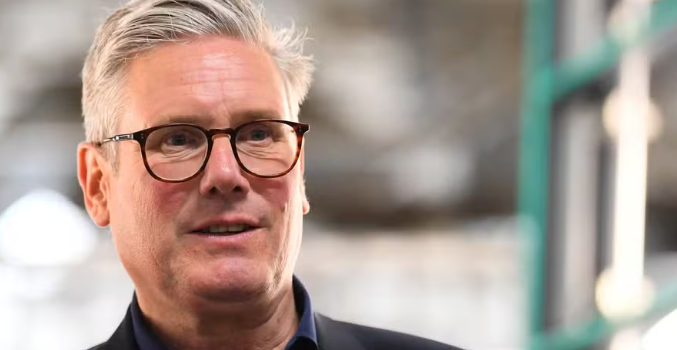
Labour leader criticized for barring Jamie Driscoll from running in the North East, with unions and MPs expressing concern
Keir Starmer is facing increasing scrutiny over the controversial decision to block North of Tyne mayor Jamie Driscoll from running for re-election in the newly expanded authority. The move has been labelled “anti-democratic” by Driscoll and key figures within the Labour Party, with concerns raised about the transparency and fairness of the decision.
Unite, Labour’s largest union donor, warned of “serious consequences” over what it called a “major mistake” in barring Driscoll, a left-wing figure, from standing in the selection process. Driscoll, who is often described as the “last Corbynista in power,” was excluded from the longlist after it was revealed he had shared a platform with filmmaker Ken Loach, who was expelled from Labour in 2021 over antisemitism concerns.
Driscoll defended his record and questioned the fairness of the process, stating it was “frankly shocking” that party members were denied a say in his candidacy. He described the move as “anti-democratic,” highlighting the broader issue of excluding socialist voices from the political arena. Driscoll also addressed the controversy over Loach’s involvement, asserting that the filmmaker had clarified his position on antisemitism, referencing a letter Loach wrote to the New York Times reaffirming his stance on the Holocaust.
Both Greater Manchester mayor Andy Burnham and Liverpool City Region mayor Steve Rotherham expressed concern about the decision, writing a joint letter to the Labour National Executive Committee (NEC). They argued that the lack of an appeal process for Driscoll and the exclusion of a sitting mayor was undemocratic and unfair.
Unite general secretary Sharon Graham also criticized the decision, warning that if Labour continues to prioritize loyalty over policy, it will risk making further mistakes. She called on the party to ensure that selection processes are democratic and inclusive.
In contrast, shadow business secretary Jonathan Reynolds defended the leadership’s position, insisting that the exclusion of Driscoll was necessary in light of his association with Loach. He reiterated Labour’s commitment to zero tolerance for antisemitism and said that the party was serious about rooting out discriminatory views.
Loach, who has been a vocal critic of Labour’s approach to antisemitism, called the decision to exclude Driscoll a “lame excuse” and a political manoeuvre to purge the left from the party. The controversy comes as the UK’s equality watchdog found that Labour was responsible for unlawful acts of harassment and discrimination during Jeremy Corbyn’s leadership, particularly around issues of antisemitism.









